INTERVIEWED BY: ANA STJELJA
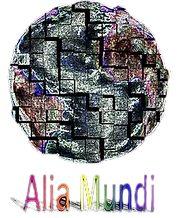

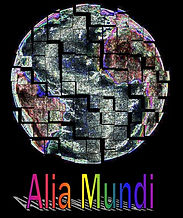
ALIA MUNDI MAGAZINE
A blog for cultural diversity

- Alia Mundi Magazine Blog
AM Interview: Faeze Mohammed

Faeze Mohammed
What inspired you to pursue a career in art, and how has your Emirati heritage influenced your artistic style?
In the UAE, we have the best leaders, as well as the well-spoken Sheikh Mohammed bin Rashid, who once said about staying motivated: “I don’t like to see someone who does not have a hobby, sport, or passion in life.” He has inspired me. The UAE has a rich culture and heritage that reflects traditional Arab values. Culture has a major influence on our lives in many ways. It shapes our values, beliefs, and behaviors, and I’m honored and proud to be part of this heritage.
How do you personally define art, and what does it mean to you on a deeper level? Can you share a specific moment or experience that solidified your passion for art and its significance in your life?
For me art is like food for my soul , it’s my time , my solitude that I’m myself , the time I can create anything that I can’t say it by words ,the time that no one is allowed to ruin it , the time of healing , the time of sound that no one can hear it but me , the time that when my hand is tired I kiss it and touch it softly to not give up , the time when I’m sleepy I wash my face and I remember myself hey you have goals to reach and I believe I can touch the sky and make myself proud.
Are there any particular artists or art movements that have influenced your perspective on art, and if so, how have they shaped your own artistic journey?
I started pursuing art professionally three years ago, beginning with impressionist techniques. Over time, I explored various styles and techniques, including portraiture. However, it was when I challenged myself with orientalist art that I believe I found my true passion. I thoroughly enjoy this style. My first attempt at orientalist art involved replicating a work by Gustave Bauernfiend. I exhibited this artwork with the Kuwait embassy. Additionally, I created another orientalist piece, also inspired by Bauernfiend, who happens to be my favorite orientalist artist from Germany. I am fascinated by how Western artists perceive Eastern people and Middle Eastern life. Their bold colors, portrayal of the richness of Eastern lands, and historical narratives captivate me.
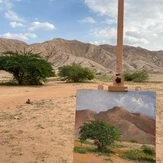
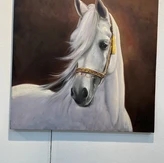
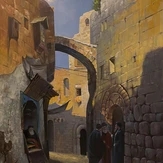
What emotions or messages do you aim to evoke through your artwork, and how do you hope viewers interpret your pieces?
I usually begin my artworks when I feel fully prepared and am in my comfort zone. I enjoy following my brush and immersing myself deeply in the mixture of oil colors. If my mind wanders or if different thoughts arise, I take a break and return when I feel ready. Sometimes, if I’m not happy or in the right mood, I refrain from adding new elements to my work and instead focus on refining the details of existing parts. I prefer not to create a new piece with negative energy as I believe it can impact the overall mood of the artwork. My goal is to transmit positive feelings to the viewer, and I’m confident that someone who looks deeply at an artwork can sense the artist’s mood. For me, art isn’t just about lines, light, and shadows; it’s a reflection of the artist’s soul.
As a female artist from Sharjah, what challenges have you faced in the art world, and how have you overcome them?
In Sharjah, art exhibitions are well-organized, free, and they hold a high regard for artists. Similarly, in other emirates of the UAE, the government supports local artists and residents. However, private galleries can be expensive, and I believe that participating in a few exhibitions is sufficient for any artist to connect with the audience.
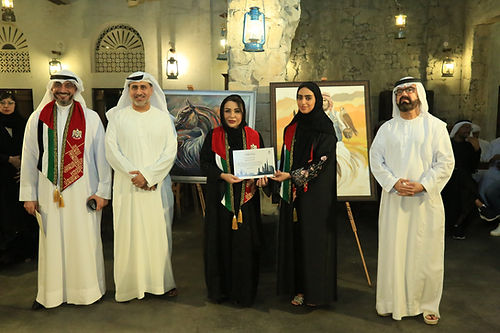
In what ways do you believe your art contributes to the cultural landscape of Sharjah and the wider UAE?
As an impressionist artist, I have been focusing on drawing landscapes and historical places in the UAE. I have created over 20 artworks, primarily outdoor paintings done en plein air. However, with my newfound passion for a new style of painting, I am excited to blend orientalist art from the past with UAE culture. You will soon see the results of this exploration.
Can you tell us about any specific cultural or societal themes and topics that you explore in your artwork, particularly related to Emirati culture? How do you balance preserving traditional Emirati artistic techniques with exploring contemporary art forms and trends?
This is a great question, but I can’t provide a complete answer at the moment. This is precisely what I’m aiming to achieve with my new collection. You will soon see how orientalism and history are mixed with UAE cultural themes.
How do you engage with the local community in Sharjah through your art, and what impact do you hope to have on your audience?
I have participated in numerous group exhibitions in the UAE, gaining valuable experience through these opportunities. I particularly admire the art community in Sharjah, which boasts a rich history dating back thousands of years. This emirate has evolved into a hub for art, literature, music, and traditions, supporting every artist within its borders.
Sharjah, with its cultural essence, sees robust support from various art organizations. Occasionally, I attend the openings of new exhibitions as a guest, appreciating the organized structure of events hosted by the Sharjah Art Society.
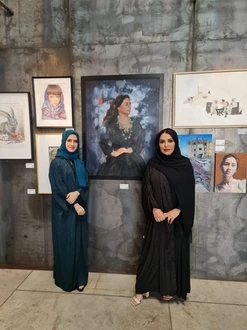


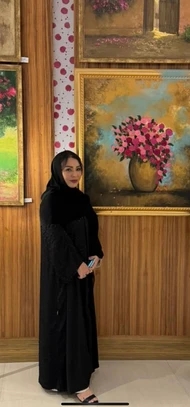
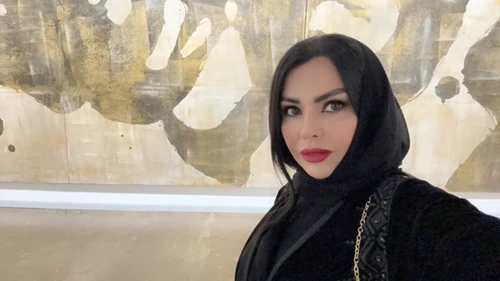
Can you share any memorable experiences or interactions you’ve had while exhibiting your art, both locally and internationally? What exhibitions are you mostly proud of?
My participation in a group exhibition with the Breathe Creativity Group for UAE National Day was incredibly memorable for me. While we were arranging and displaying artworks from various participants, a young couple stopped by my artwork and asked, ‘Is this your work?’ They purchased it before the exhibition even began.
Are there any upcoming projects or collaborations that you’re particularly excited about, and how do they reflect your artistic vision and goals?
I’m currently working on my collection for my first solo exhibition, and I couldn’t be more excited about it. The collection comprises large artworks, all revolving around the same theme and story.
I’m aiming to complete the collection before summer. Some pieces of my artwork draw inspiration from my favorite orientalist artists, while others are original works based on my own photography and imagination, with a similar style of orientalism
What advice would you give to aspiring female artists, especially those from Sharjah or the UAE, who are looking to establish themselves in the art world?
If you feel that your soul is searching for something meaningful, step into the world of art and embrace a new lifestyle that fulfills your desires in a unique way, something no one else can do for you.
It’s never too late to embark on a new journey, especially in art. You don’t need formal art education to begin, and age is irrelevant. What matters is your dedication, hard work, and love for what you do. Every woman, regardless of age, can start her artistic journey if she finds joy in creating.
If you’re ready to dive in, seek out a good mentor to learn various techniques. Give yourself time to improve and never give up. Don’t just follow trends; instead, discover your passion and strive to enhance it through hard work.
INTERVIEWED BY: ANA STJELJA
PHOTO: PRIVATE ARCHIVE










